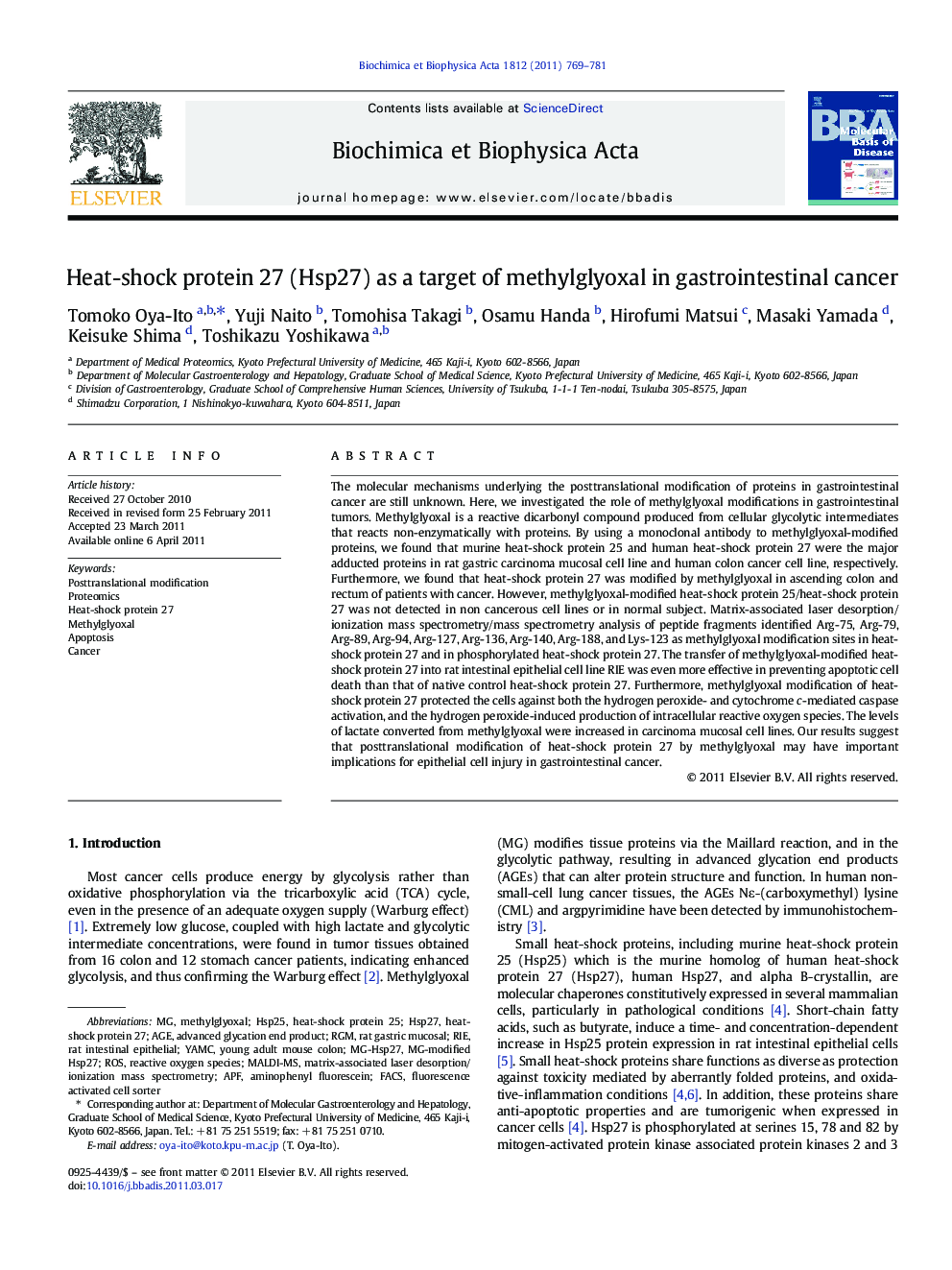| Article ID | Journal | Published Year | Pages | File Type |
|---|---|---|---|---|
| 1905149 | Biochimica et Biophysica Acta (BBA) - Molecular Basis of Disease | 2011 | 13 Pages |
The molecular mechanisms underlying the posttranslational modification of proteins in gastrointestinal cancer are still unknown. Here, we investigated the role of methylglyoxal modifications in gastrointestinal tumors. Methylglyoxal is a reactive dicarbonyl compound produced from cellular glycolytic intermediates that reacts non-enzymatically with proteins. By using a monoclonal antibody to methylglyoxal-modified proteins, we found that murine heat-shock protein 25 and human heat-shock protein 27 were the major adducted proteins in rat gastric carcinoma mucosal cell line and human colon cancer cell line, respectively. Furthermore, we found that heat-shock protein 27 was modified by methylglyoxal in ascending colon and rectum of patients with cancer. However, methylglyoxal-modified heat-shock protein 25/heat-shock protein 27 was not detected in non cancerous cell lines or in normal subject. Matrix-associated laser desorption/ionization mass spectrometry/mass spectrometry analysis of peptide fragments identified Arg-75, Arg-79, Arg-89, Arg-94, Arg-127, Arg-136, Arg-140, Arg-188, and Lys-123 as methylglyoxal modification sites in heat-shock protein 27 and in phosphorylated heat-shock protein 27. The transfer of methylglyoxal-modified heat-shock protein 27 into rat intestinal epithelial cell line RIE was even more effective in preventing apoptotic cell death than that of native control heat-shock protein 27. Furthermore, methylglyoxal modification of heat-shock protein 27 protected the cells against both the hydrogen peroxide- and cytochrome c-mediated caspase activation, and the hydrogen peroxide-induced production of intracellular reactive oxygen species. The levels of lactate converted from methylglyoxal were increased in carcinoma mucosal cell lines. Our results suggest that posttranslational modification of heat-shock protein 27 by methylglyoxal may have important implications for epithelial cell injury in gastrointestinal cancer.
Research highlights► Hsp25/Hsp27 is modified by methylglyoxal in carcinoma but not in healthy cell lines. ► Methylglyoxal modification of Hsp27 was necessary for its enhanced anti-apoptotic effects. ► Methylglyoxal modification of Hsp27 decreases intracellular reactive oxygen species. ► Lactate converted from methylglyoxal are elevated in carcinoma mucosal cell lines.
